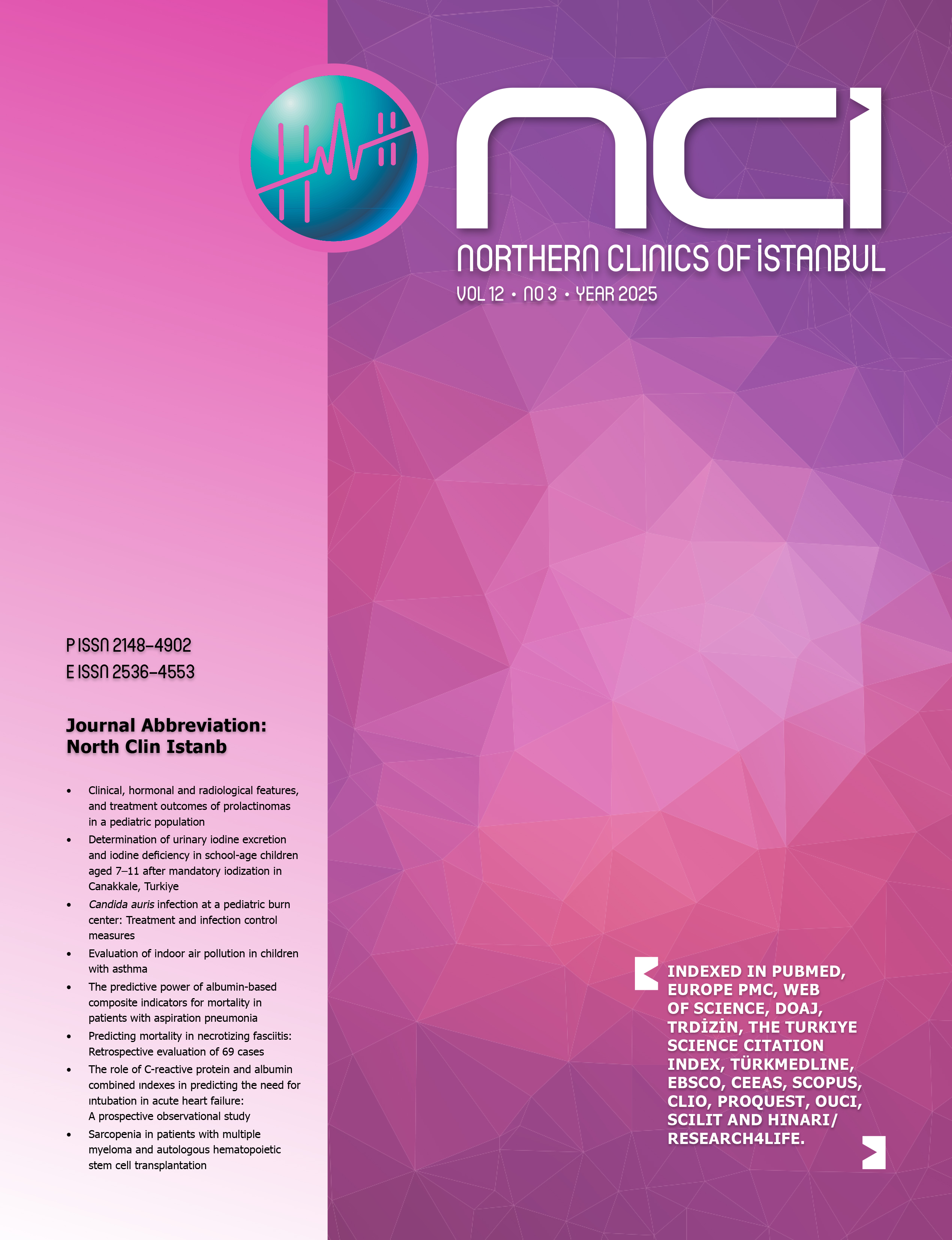Young age and shorter duration of Crohns disease are associated with non-adherence to taking medication
Hasan YilmazDepartment of Gastroenterology, Kocaeli University Faculty of Medicine, Kocaeli, TurkeyOBJECTIVE: The mainstay of Crohns disease treatment is medical therapy. Failure to comply with medications causes disease activation, loss of response to treatment, and increased hospitalization rates. Drug non-adherence worsens the course of the disease, leading to fistula, stricture, and surgical interventions. The adherence rates to drug therapy in Crohns disease patients and the risk factors vary considerably in the literature. The aim of the study was to investigate drug adherence rates and factors affecting adherence to Crohns disease medications.
METHODS: This study was conducted as prospective cohort study at the tertiary health care institution inflammatory bowel disease outpatient clinic within 1 year. Crohns disease characteristics and pharmacy records of consecutive patients were evaluated. Medication adherence was assessed by calculating the medication possession ratio using the amount of medication purchased from the pharmacy.
RESULTS: A total of 129 patients were included in the study. It was observed that 43.6% of the patients did not comply with their Crohns disease medications. It was determined that the patients who did not adhere to the medication were significantly younger (41±12 vs. 48±13, p=0.039). The duration of the disease is shorter in patients who did not comply with the drugs (4.50 [IQR: 3.0012.00] vs. 6.00 [IQR: 3.0012.00, p=0.025]). Adherence with medication is lower in patients with higher education levels (35.7% vs. 64.3%, p=0.023).
CONCLUSION: Medication adherence is of critical importance for Crohns disease outcomes. Nearly half of Crohns disease patients do not comply with drugs. Young and highly educated patients with shorter disease duration should be targeted for measures to increase the rates of medication adherence.
Young age and shorter duration of Crohns disease are associated with non-adherence to taking medication
Hasan YilmazKocaeli Üniversitesi Tıp Fakültesi, Gastroenteroloji Anabilim Dalı, KocaeliAmaç: Crohn hastalığı tedavisinin temeli medikal tedavidir. Medikal tedaviye uyulmaması hastalık aktivasyonuna, tedaviye yanıt kaybına ve hastanede yatış oranlarının artmasına neden olur. Literatürde Crohn hastalığı hastalarında ilaç tedavisine uyum oranları ve risk faktörleri oldukça değişkenlik göstermektedir. Bu çalışmada Crohn hastalığında ilaç tedavisine uyum oranlarını ve ilaca uyumu etkileyen faktörleri araştırmayı amaçladık.
Yöntemler: Çalışma prospektif bir kohort çalışması olup üçüncü basamak sağlık kurumunun inflamatuvar bağırsak hastalıkları polikliniğinde bir yıl süreli olarak düzenlenmiştir. Ardışık hastaların Crohn hastalığı özellikleri ve eczane ilaç kayıtları değerlendirildi. İlaç uyumu eczaneden alınan ilaç miktarı kullanılarak ilaç bulundurma oranı hesaplanarak değerlendirildi.
Bulgular: Çalışmaya toplam 129 hasta dahil edildi. Hastaların %43.6'sının Crohn hastalığı ilaçlarına uyum göstermediği görüldü. İlaç tedavisine uymayan hastaların anlamlı olarak daha genç olduğu (41 ±12vs48 ±13, p=0.039) ve bu hastalarda hastalık süresinin daha kısa olduğu belirlendi [4.50 (IQR: 3.00-12.00) vs. 6.00 (IQR: 3.00-12.00, p değeri=0.025)]. İlaç uyumu daha yüksek olan hastalarda eğitim seviyeleri daha düşük bulundu. (%35.7'ye karşılık %64.3, p değeri=0.023).
Sonuçlar: İlaç uyumu, Crohn hastalığı tedavi sonlanımları için kritik öneme sahiptir. Crohn hastalarının yaklaşık yarısı ilaca uymamaktadır. İlaç uyum oranlarını artırmak için genç ve eğitimli, hastalık süresi daha kısa olan hastalar hedeflenerek önlemler alınmalıdır. (NCI-2021-9-3/R1)
Manuscript Language: English





















